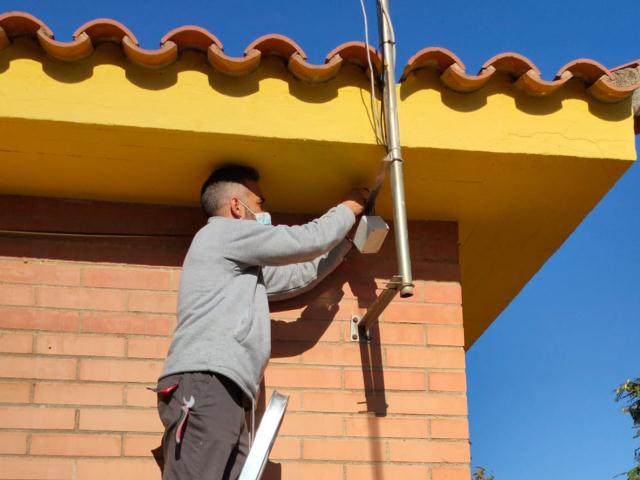The Department of the Environment and the public innovation agency Neàpolis have launched a joint pilot test at schools in Aragai and Arjau. It is a system for capturing various environmental data that will be the basis for an energy efficiency study for school facilities in the city.
This project, which has received financial support from the Provincial Council, aims to study the current environmental situation of schools and their evolution to implement measures derived from a greater knowledge of their needs. Optimizing the resources offered by schools and their treatment as smart equipment means improving the energy and environmental efficiency of both schools and the city in general.
The placement of sensors in different parts of the buildings, both indoors and outdoors, will allow to collect, permanently and synchronously, the data of temperature, atmospheric pressure, humidity, CO2 level and brightness.
The sensors are autonomous, run on batteries and wireless and can be easily transported to other equipment or spaces in the same school. Constant data is stored in a database installed in Neàpolis. These data can be consulted in real time and will be public via the web, connected to the network of sensors of the same Diputación.
To make data collection possible, Neàpolis has a wireless network for capturing information for these types of sensors that is coordinated with that of the Provincial Council. The goal in the coming months of the Department of the Environment and, by extension, Neàpolis focuses on being able to audit more accurately public buildings, detect possible anomalies harmful to people and correct incidents in heating and air remotely or propose the necessary changes to reduce consumption and improve the comfort of the centers.
The Councilor for Innovation, Conxi Martínez, explains that “we intend to generate solutions in different areas and public services by promoting the social benefit of technologies. In this case, this sensorisation must allow us to adopt measures on a contrasted and reliable database, making school equipment more efficient and, by extension, services to the public ”.
Once this first pilot test has been tested and validated, it is planned to extend the data collection to other schools.


